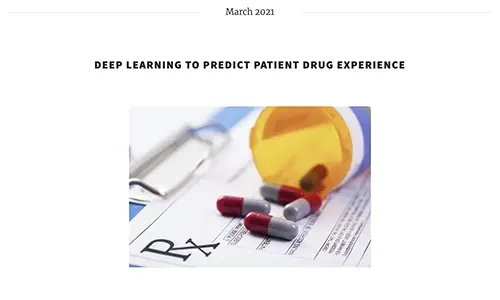
Data Science Certificate
Fast Track Your Future
Harness the abilities that will help you land the data science job of your dreams.
Begin the Data Science Certificate built for professionals like you.
70% of students gained a new job or promotion within 2 years of starting the program.
Tuition Starts at
$399 / mo
Data Scientist Salary
$108,020 / yr

How To Start Your Certificate
- Complete your free application above.
- Select your payment option (no payment due until enrollment).
- Select courses, and then enroll.
What The Data Science Program Includes
7
Analytics Courses
1
Capstone Projects
Project Examples
You’ll have support creating a GitHub portfolio to showcase your work and help you stand out in a field of applicants.




Expert-Led Courses
You’ll have access to tailored courses led by industry experts. Along the way, you’ll be introduced to industry professionals, including potential employers.
Required Courses
Meet Our Instructors
Dr. Abhaya Indrayan
Dr Abhaya Indrayan is the former Professor and Chair of…

Learn At Your Pace

Avg. hours per week: 10-15 hours

Course length: 4 weeks

Avg. program length: 12-18 months
Payment Options

Pay Monthly
24 payments of $399

Pay Once (Save ~20%)
1 payment of $7,899

New Career. New Opportunities.
What Success Looks Like







The Statistics.com courses have helped me a lot, pushing me to the limit and making me learn much more than I expected I could. The knowledge I gained I could immediately leverage in my job … then eventually led to landing a job in my dream company – Amazon.
Karolis Urbonas
This program has been a life and work game changer for me. Within 2 weeks of taking this class, I was able to produce far more than I ever had before.
Susan Kamp
The material covered in the Analytics for Data Science Certificate will be indispensable in my work. I can’t wait to take other courses. Great work!
Stephen McAllister
I learned more in the past 6 weeks than I did taking a full semester of statistics in college, and 10 weeks of statistics in graduate school. Seriously.
Amir Aminimanizani
This is the best online course I have ever taken. Very well prepared. Covers a lot of real-life problems. Good job. Thank you very much!
Elena Rose
The more courses I take at Statistics.com, the more appreciation I have for the smart approach, quality of instructors, assistants, admin and program. Well done!
Leonardo Nagata
This course greatly benefited me because I am interested in working in AI. It has given me solid foundational knowledge. After completing this last course, I feel I have gained valuable skills that will enhance my employability in data science, opening up diverse career opportunities.
Richard Jackson
Frequently Asked Questions
-
What is DataSciencePro?
-
How does the mentorship program work?
-
How long does the mentorship program last?
-
How often will I meet with my mentor?
-
What is a GitHub portfolio?
-
What will the capstone project focus on?

Need More Information?
We’d love to answer your questions
701 E Water St Suite 103, Charlottesville, VA 22902